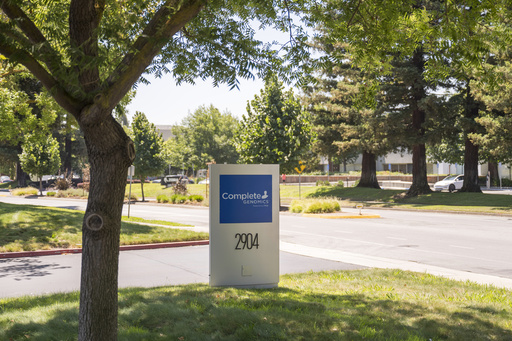A biotechnology company in California, Complete Genomics, is facing potential exclusion from the U.S. market due to its ties to China, highlighting the complex balance between health innovation and efforts in Congress to counter Beijing’s global influence. The company, which aids in detecting genetic causes for cancer, has been impacted by the BIOSECURE Act passed by the U.S. House, along with four other companies linked to China, aimed at safeguarding national security by preventing federal funds from benefiting them.
The legislation, passed by a 306-81 vote and now heading to the Senate, is part of a range of bills targeting China’s influence in technology. Supporters argue that such measures are essential to protecting Americans’ healthcare data, reducing dependence on China in the medical supply chain, and securing an advantage in the biotech field, crucial for both nations’ economies and security.
On the other hand, opponents of the bill claim that it could impede clinical trials, increase medication costs, and hinder innovation in drug development. The BIOSECURE Act proposes banning China-linked companies from partnering with organizations receiving U.S. government funding, which could disrupt collaborations critical for American pharmaceutical advances.
Complete Genomics, a subsidiary of China-based MGI, insists that Americans’ personal data privacy is not compromised as its instruments are only linked to local U.S. servers. The company argues for broad data protection standards rather than targeting specific entities, emphasizing the importance of fair competition among American biotech and pharmaceutical companies.
Among the companies named in the legislation are BGI, MGI, WuXi AppTec, and WuXi Biologics, all playing integral roles in genetic sequencing and drug development for U.S. firms. These companies, including BGI and MGI, have denounced the bill as unfairly singling out organizations under the guise of national security, emphasizing their adherence to regulations and laws.
WuXi AppTec and WuXi Biologics, contractors assisting U.S. drugmakers in research and development, express concerns about the bill’s impact on biotech innovation, drug production, patient care, and healthcare costs. The industry fears significant consequences due to its extensive collaborations with Chinese partners, as highlighted in reports to the U.S. Securities and Exchange Commission.
Given the potential ramifications on the pharmaceutical supply chain, biotech companies like Eli Lilly have been working to relocate some manufacturing closer to home, although such transitions can be lengthy and complex. The Biotechnology Innovation Organization (BIO), a major advocacy group, supports the bill, citing national security imperatives and endorsing the allotted eight-year timeframe for U.S. companies to sever ties with Chinese entities.



